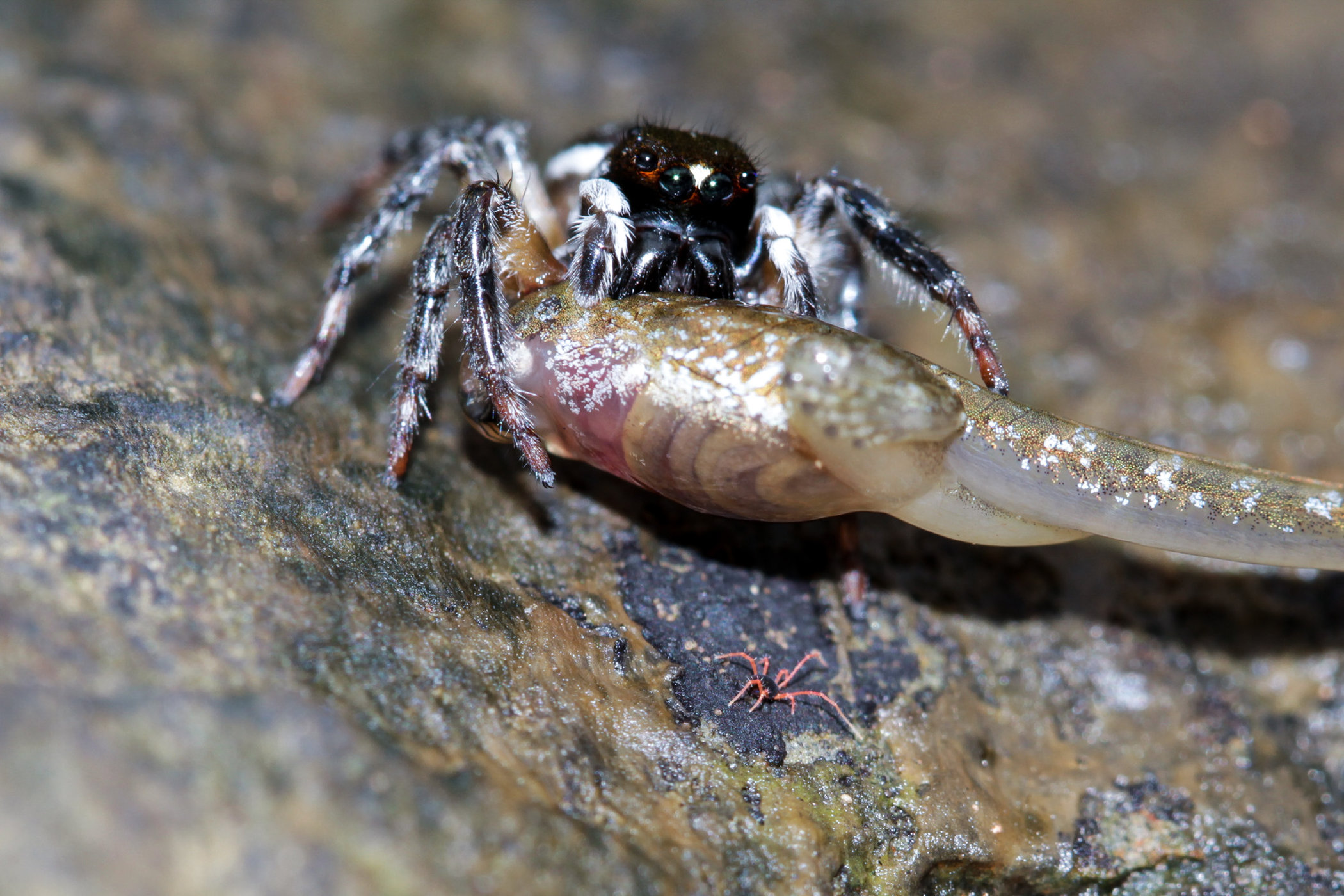11 Dec 2024

Tired Earth
By The Editorial Board

Forget meals of flies and gnats; those are for amateurs. One jumping spider in India is feasting on tadpoles instead.
For the first time, researchers have observed a jumping spider preying on a tadpole. The scientists stumbled across the strange scene in the Kumbharli Ghat mountain pass of western India.
Late one afternoon in 2014, during monsoon season, researchers doing a botanical survey noticed a 7-foot (2.1 meters) cliff with streamlets cascading down it. Several tadpoles were clinging to the muddy rock within the flowing water. And stalking them was a small, brown-and-black spider with fuzzy white fur on its foremost appendages. As the researchers watched, the spider snatched one of the tadpoles from midstream and dragged it up the cliff to consume it.
"We realized at once that this was completely new, undocumented behavior," said Javed Ahmed, an arachnologist on the research team and the co-author of a new paper in the journal Peckhamia describing the discovery.
Jumping spiders are a large group of species known for their active hunting style. Instead of weaving webs, these arachnids typically pounce on prey. They likely have the best vision of any land-dwelling invertebrate, Ahmed told Live Science in an email. (This fact was made semifamous in a much-beloved Twitter thread in which a University of Washington astronomer facing a jumping spider infestation in her office discovered that the arachnids would chase a laser-pointer light. The astronomer ended up in a lively conversation with a University of Cincinnati expert on jumping-spider vision who subsequently calculated that the spiders' eyes are sharp enough to see the moon.)
Some large species of jumping spider have been known to prey on small amphibians, Ahmed said.
Jumping spiders "are not the spiders which come to mind when one's talking about spiders which can take aquatic vertebrates, such as small fish and tadpoles," Ahmed said.
The spider that Ahmed and his colleagues observed was likely a close relative of the common species Hasarius adansoni, based on its markings and size, the researchers reported. They couldn't identify it more specifically; it could be a previously undiscovered species, Ahmed said. At any rate, H. adansoni grows to only about 0.3 inches (8 millimeters) in length, much smaller than the amphibian-hunting Florida species.
The Western Ghats, where the spider was seen, are a chain of mountains chock-full of unexplored biodiversity, Ahmed said. He tweets about his work in the area (and about other invertebrate research) @curiocritters. Ultimately, he said, the goal of this research is to fill in the huge gaps in what is known about biodiversity in the Western Ghats.
"[The] species richness, coupled with a lack of proper research on many groups of invertebrates in the region, means there are several organisms waiting to be discovered, or rediscovered," he said. "And that's just what we're doing, discovering spiders one species at a time."
Source : www.livescience.com
Comment